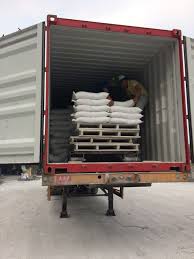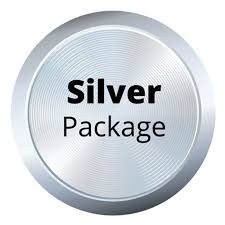![]()
If you’ve landed on this article page, you’re probably searching for a
good business idea—an idea that’s light on the pocket but heavy on
returns, promising both a fulfilling journey and potential profit.
|
How to start Lucrative Export of Limestone from Nigeria
The limestone export business presents a lucrative opportunity
for Nigeria and Africa due to the region’s abundant limestone
reserves and growing global demand for construction materials.
In Nigeria alone, limestone deposits are widespread, with
notable reserves in states such as Ogun, Cross River, and
Ebonyi. Africa boasts substantial limestone resources across
various countries, contributing to the continent’s position as a
significant player in the global limestone market.
In Nigeria, the limestone export business presents a promising
opportunity for economic diversification and foreign exchange
earnings. With the right infrastructure and strategic
partnerships, Nigeria can capitalize on its limestone resources
to meet both domestic demand and international markets’ needs.
Leveraging efficient mining practices, sustainable extraction
methods, and robust supply chain networks will be crucial for
maximizing the export potential of limestone from Nigeria and
Africa.
Uses of Limestone Around The World
Construction Materials: Limestone is widely used as a
construction material worldwide, serving as a key component in
concrete, asphalt, and mortar. Its durability and versatility
make it ideal for building foundations, roads, bridges, and
various infrastructure projects.
Agricultural Applications: In agriculture, limestone is utilized
to adjust soil pH levels and improve crop yields. It is commonly
applied as a soil amendment to neutralize acidic soils, enhance
nutrient uptake, and promote healthier plant growth.
Industrial Uses: Limestone finds extensive use in various
industries, including steel manufacturing, chemical production,
and pulp and paper processing. It serves as a fluxing agent in
steelmaking, a raw material in chemical reactions, and a filler
in papermaking processes.
Environmental Remediation: Limestone plays a crucial role in
environmental remediation efforts. It is employed in flue gas
desulfurization systems to remove sulfur dioxide emissions from
industrial exhaust gases, reducing air pollution and mitigating
acid rain effects.
Water Treatment: In water treatment facilities, limestone is
used to purify and soften water by removing impurities and
adjusting pH levels. It serves as a natural filtration medium in
water treatment processes, ensuring clean and safe drinking
water for communities.
Decorative Stone: Limestone’s aesthetic appeal makes it a
popular choice for decorative purposes in landscaping,
architecture, and interior design. It is utilized for cladding,
facades, flooring, and other ornamental applications due to its
natural beauty and texture.
Types Of Limestone Export Incoterms In Nigeria and Africa
1. Ex Works (EXW): Under Ex Works (EXW), the seller’s
responsibility ends once the limestone is made available at
their premises. The buyer bears all costs and risks associated
with transportation, including loading, shipping, and insurance.
2. Free on Board (FOB): With Free on Board (FOB), the seller
delivers the limestone to the designated port of shipment and
covers export customs clearance. The buyer assumes
responsibility from loading onto the vessel, including freight
costs and marine insurance.
3. Cost and Freight (CFR): Cost and Freight (CFR) requires the
seller to handle transportation to the destination port
specified by the buyer. The seller covers costs up to loading
onto the vessel, while the buyer assumes responsibility from
that point onward.
4. Cost, Insurance, and Freight (CIF): Similar to CFR, Cost,
Insurance, and Freight (CIF) includes insurance coverage in
addition to transportation costs. The seller arranges shipping
and insurance to the destination port, with the buyer taking
over upon arrival.
5. Delivered at Place (DAP): Under Delivered at Place (DAP), the
seller is responsible for delivering the limestone to a
specified destination agreed upon with the buyer. The seller
bears all risks and costs until the goods are unloaded at the
designated location.
6. Delivered Duty Paid (DDP): Delivered Duty Paid (DDP) places
the maximum responsibility on the seller, who arranges for
transportation, pays for duties, taxes, and clears the limestone
for import at the buyer’s location.
7. Free Alongside Ship (FAS): Free Alongside Ship (FAS) requires
the seller to deliver the limestone to a designated port for
loading onto the vessel specified by the buyer. The buyer
assumes responsibility once the goods are placed alongside the
ship.
1. Selection of Packaging Materials: Choose suitable packaging
materials that provide adequate protection for limestone during
transportation, such as jute bags, bulk containers, or pallets.
2. Proper Weighing and Measurement: Accurately weigh and measure
the limestone before packaging to ensure compliance with export
requirements and to determine the quantity for each shipment.
3. Segregation by Grades: Separate limestone into different
grades based on quality and particle size to meet the diverse
needs of international markets and facilitate efficient
packaging.
4. Secure Packaging: Pack limestone securely to prevent breakage
or spillage during transit. Ensure that packages are sealed
tightly and labeled with relevant information, including product
specifications and destination details.
5. Moisture Control: Implement measures to control moisture
levels in packaged limestone to prevent deterioration and
maintain product quality during shipping.
6. Compliance with Export Regulations: Ensure compliance with
export regulations and requirements, including documentation,
labeling, and certification, to facilitate smooth customs
clearance and avoid delays or penalties.
7. Transportation Arrangements: Arrange for reliable
transportation services to deliver packaged limestone to the
port of export efficiently. Coordinate with logistics providers
to ensure timely pickup and delivery.
8. Monitoring and Tracking: Monitor the packaging and export
process closely, tracking shipments at each stage to identify
any potential issues and take corrective actions promptly.
1. Crushers: Crushers are used to break down large limestone
rocks into smaller pieces suitable for processing and packaging.
2. Screens: Screens are utilized to separate limestone particles
into different sizes, ensuring uniformity and quality control.
3. Conveyors: Conveyors transport limestone from one processing
stage to another, facilitating smooth workflow and reducing
manual handling.
4. Hoppers: Hoppers store limestone before processing, ensuring
a steady supply of raw materials to the production line.
5. Dryers: Dryers remove excess moisture from limestone to
improve its quality and shelf life during storage and export.
6. Mills: Mills grind limestone into fine powder or granules,
enhancing its usability in various applications such as
construction and agriculture.
7. Bagging Machines: Bagging machines automate the packaging
process, efficiently filling bags or containers with processed
limestone.
8. Weighing Scales: Weighing scales accurately measure the
quantity of limestone being processed and packaged, ensuring
compliance with export standards.
9. Palletizers: Palletizers stack packaged limestone bags or
containers onto pallets, optimizing storage space and
facilitating loading for transportation.
10. Forklifts: Forklifts handle palletized limestone,
transporting it within the processing facility or loading it
onto trucks for export.
11. Bulk Loaders: Bulk loaders load large quantities of
limestone directly into bulk carriers for export, streamlining
the shipping process.
12. Dust Collectors: Dust collectors capture airborne particles
generated during processing, maintaining a clean and safe
working environment.
13. Packaging Sealers: Packaging sealers securely seal bags or
containers filled with limestone, preventing spillage or
contamination during transit.
14. Labeling Machines: Labeling machines apply product labels to
packaged limestone, including essential information such as
product specifications and destination details.
15. Wrapping Machines: Wrapping machines encase palletized
limestone in protective wrapping materials, safeguarding it
against moisture and damage during storage and transit.
16. Shrink Wrap Machines: Shrink wrap machines apply heat to
shrink wrapping materials tightly around palletized limestone,
providing additional protection and stability.
17. Stretch Wrap Machines: Stretch wrap machines stretch and
secure stretch film around palletized limestone, preventing
shifting or movement during transportation.
18. Strapping Machines: Strapping machines apply sturdy straps
or bands around palletized limestone, reinforcing packaging and
preventing breakage or spillage.
19. Bag Stitching Machines: Bag stitching machines quickly and
securely stitch bags filled with limestone closed, ensuring the
integrity of the packaging.
20. Vacuum Sealers: Vacuum sealers remove air from packaging
before sealing, extending the shelf life of limestone products
and reducing the risk of spoilage.
21. Metal Detectors: Metal detectors identify any metal
contaminants in limestone products before packaging, ensuring
product purity and safety.
22. Quality Control Equipment: Quality control equipment, such
as moisture analyzers and particle size analyzers, monitor and
maintain limestone quality throughout the processing and
packaging stages.
23. Load Cells: Load cells measure the weight of bulk limestone
during loading onto trucks or bulk carriers, ensuring accurate
documentation and compliance with export regulations.
24. Dust Suppression Systems: Dust suppression systems suppress
airborne dust generated during limestone processing and
handling, promoting a safer and healthier work environment.
25. Shipping Containers: Shipping containers transport packaged
limestone safely and securely to international markets,
providing protection against environmental factors and physical
damage during transit.
Our full mentorship guide will allow you to start Limestone
exportation immediately as we have trusted and reliable
buyers that can give you Limestone contract immediately.
|










